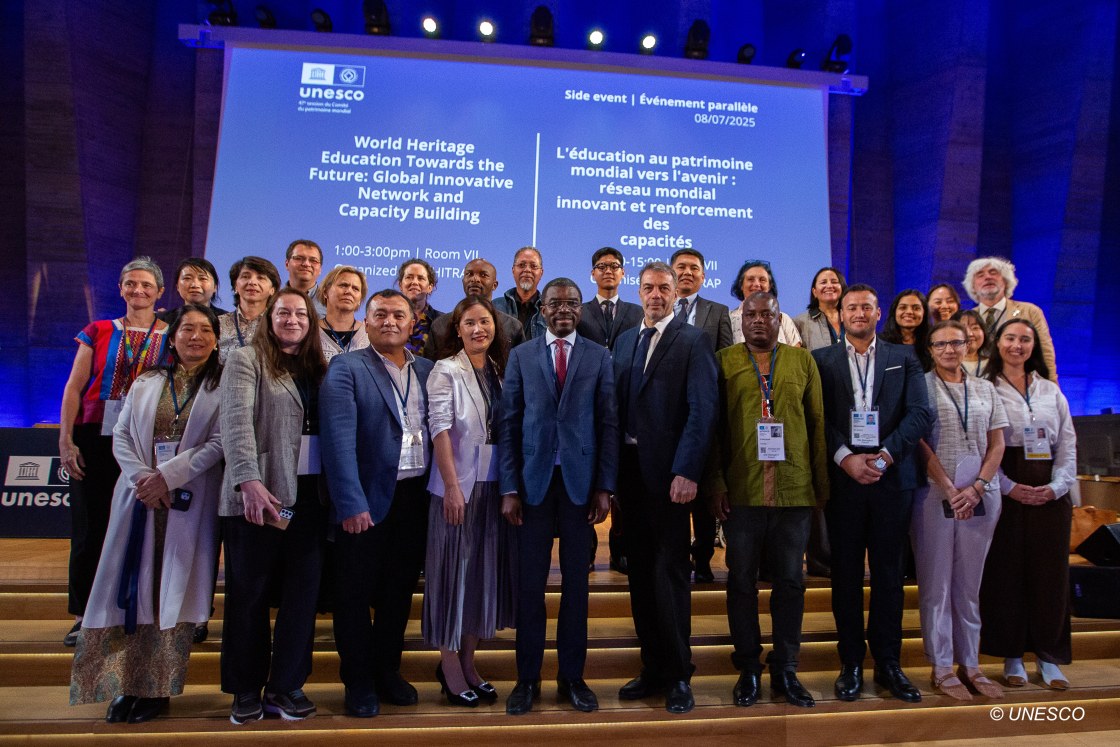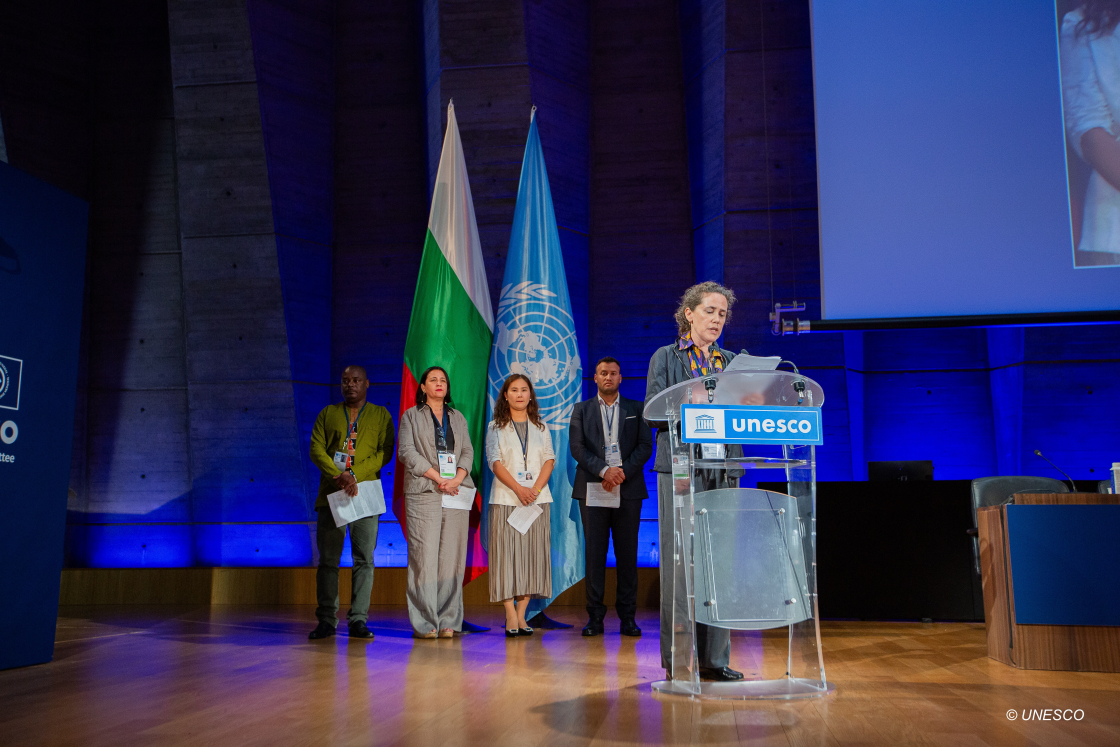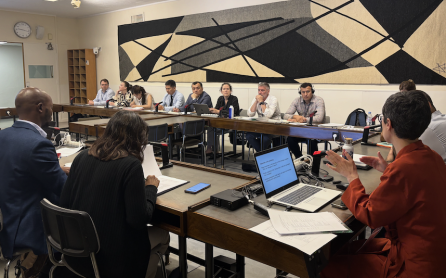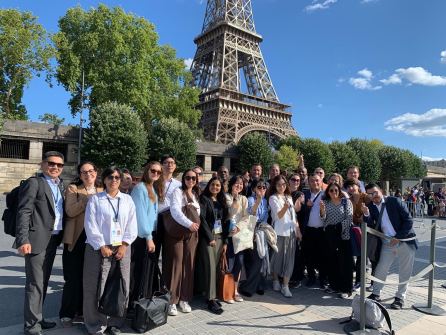From 7 to 9 July, the 7th edition of the World Heritage Site Managers' Forum took place at the UNESCO Headquarters in Paris, alongside the 47th session of the World Heritage Committee.
This year’s Forum brought together 18 site managers responsible for the management of 17 World Heritage properties in Albania, Bulgaria, Chile, China, Ecuador, France, Kyrgyzstan, Lebanon, Morocco, Mozambique, North Macedonia, the Republic of Korea, Suriname, Sweden, Ukraine, Uzbekistan, and Zimbabwe.
Held under the theme Enhancing engagement in the World Heritage Reactive Monitoring process, the Forum explored how this mechanism provides support to better manage and protect World Heritage. Discussions focused on what is needed by site managers to implement mission recommendations and World Heritage Committee decisions. Participants shared experiences, identified challenges, and proposed ways to make the process more relevant to on-the-ground needs.
Key topics on the state of conservation were also tackled, including impact assessment and climate action for World Heritage. Participants were also introduced to key resources, such as the Enhancing Our Heritage Toolkit 2.0, the Guidance and Toolkit for Impact Assessments in a World Heritage Context and the forthcoming manual on Managing World Heritage and the Climate Action Toolkit for World Heritage.
In collaboration with the Association of French World Heritage Sites and the City of Paris, the Forum offered participants the chance to visit World Heritage sites. They explored the ‘Paris, Banks of the Seine’ and visited the Maison La Roche, a component of the ‘The Architectural Work of Le Corbusier, an Outstanding Contribution to the Modern Movement’, hosted by the Foundation Le Corbusier.
On 8 July, participants presented a final statement to the World Heritage Committee, summarising the results of their discussions and exchanges. The statement emphasized the importance of Reactive Monitoring in supporting World Heritage management and conservation and called for:
- Stronger collaboration among site managers, States Parties, the World Heritage Centre, and Advisory Bodies;
- More inclusive engagement of Indigenous Peoples, local communities, and civil society to ensure effective conservation action; and
- Prioritising increased investment in capacity building to equip site managers with knowledge and tools to engage with World Heritage processes and strengthen heritage management.
The 7th World Heritage Site Managers' Forum was organized by ICCROM and IUCN through our joint World Heritage Leadership programme, the UNESCO World Heritage Centre and Bulgaria, as the host country of the 47th session of the World Heritage Committee. The implementation of the Forum was supported by Ireland, China and the Republic of Korea who provided scholarship to site managers, and by Azerbaijan who provided French and English interpretation.
Over the years, the Forum has become an essential networking space for site managers to meet, exchange and establish collaborations to foster the protection of World Heritage by building a global community of practice.




